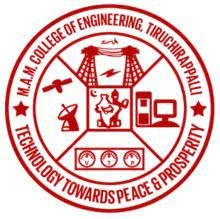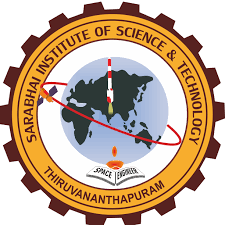Unlock a promising career in electronics and instrumentation engineering. Contribute to automation, measurement technology, and industrial control. Enjoy career growth in manufacturing, automation, research, and development.
Future Scope & Benefits of M.Tech in Electronics Instrumentation Engineering
Embarking on a journey to earn an M.Tech degree in Electronics Instrumentation Engineering opens doors to a world of opportunities and technological advancements. This field, at the intersection of electronics and instrumentation, is at the forefront of innovation, making it an exciting choice for those passionate about cutting-edge technology. In this guide, we will explore the future prospects and the numerous benefits of choosing an M.Tech in Electronics Instrumentation Engineering as your academic path.
Future Scope of M.Tech in Electronics Instrumentation Engineering
Industrial Automation: With the increasing demand for efficient and cost-effective industrial processes, automation is becoming indispensable. Electronics Instrumentation Engineers will play a vital role in designing and implementing automation systems across industries.
IoT and Sensor Technology: The Internet of Things (IoT) is revolutionizing the way devices and systems interact. Electronics Instrumentation Engineers will be at the forefront of developing sensors, communication protocols, and IoT solutions.
Healthcare Technology: The healthcare sector relies on instrumentation and electronics for diagnostics, monitoring, and treatment. M.Tech graduates can contribute to the development of advanced medical devices and telemedicine solutions.
Energy Management: As energy conservation and management become paramount, Electronics Instrumentation Engineers will work on developing smart grids, energy-efficient systems, and renewable energy technologies.
Robotics and Automation: The field of robotics is expanding rapidly, with applications in manufacturing, healthcare, and more. Electronics Instrumentation Engineers will contribute to the development of autonomous systems and robotics technology.
Data Analytics: With the proliferation of data, there is a growing need for experts who can analyze and interpret complex data sets. Electronics Instrumentation Engineers can leverage their skills to work in data analytics and machine learning.
Aerospace and Defense: Aerospace and defence industries rely heavily on electronics and instrumentation for navigation, communication, and security. Graduates can work on advanced defence systems and space exploration technologies.
Environmental Monitoring: Monitoring and preserving the environment is a global concern. Electronics Instrumentation Engineers can design systems for environmental monitoring, pollution control, and conservation efforts.
Research and Development: Graduates can pursue careers in research and development, pushing the boundaries of technology and innovation in the field of electronics and instrumentation.
Benefits of Pursuing M.Tech in Electronics Instrumentation Engineering
Technological Advancement: Electronics Instrumentation Engineering is at the forefront of technological innovation, providing opportunities to work on cutting-edge projects.
Interdisciplinary Skills: The program equips graduates with interdisciplinary skills in electronics, instrumentation, control systems, and data analysis.
Problem-Solving Abilities: Electronics Instrumentation Engineers are trained to analyze complex systems and devise solutions, making them valuable problem solvers in various industries.
Diverse Career Options: Graduates can explore diverse career paths in industries such as manufacturing, healthcare, aerospace, and research.
Competitive Salaries: Due to their specialized knowledge, Electronics Instrumentation Engineers often command competitive salaries.
Global Opportunities: The skills acquired are transferable globally, providing opportunities for international careers and collaborations.
Innovation: Graduates can contribute to technological innovations that address real-world challenges and improve the quality of life.
Industry Demand: The increasing reliance on automation, IoT, and data-driven solutions ensures a steady demand for Electronics Instrumentation Engineers.
Sustainability: Graduates can contribute to sustainability efforts by working on energy-efficient systems and environmental monitoring technologies.
Research and Development: For those inclined towards research, the field offers ample opportunities to contribute to advancements in electronics and instrumentation technology.
 2 Years
2 Years
 Post Graduate
Post Graduate
 Engineering
Engineering
 Full Time
Full Time















 back
back

